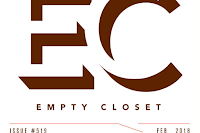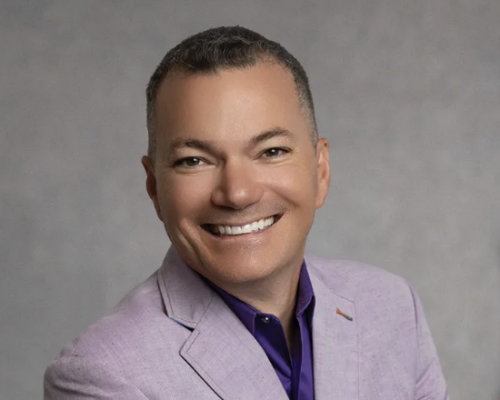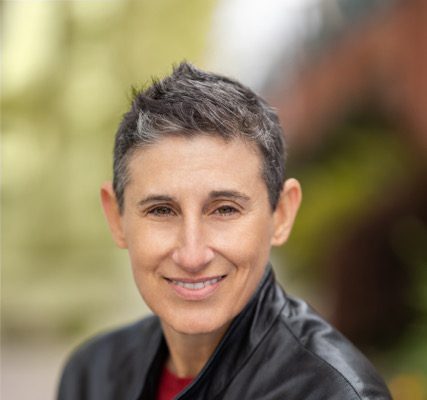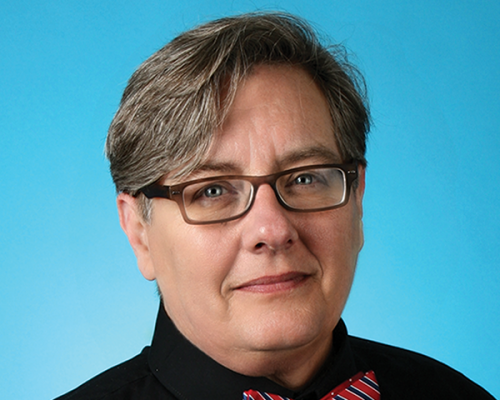PRESSING QUESTIONS: Empty Closet of Rochester, N.Y.
Geographic coverage area: Rochester and surrounding counties, extending into Central and Western New York
Year founded: January 1971
Staff size and breakdown: (writers, editors, designers, etc.): Two, myself as editor and main writer, and a designer. Other contributors are volunteers.
Average page count: 40
Print run: 6,000-plus, 11 issues per year
Web site: outalliance.org/emptycloset
*****
PPQ: What feature or features of Empty Closet have been the most popular with readers?
Editor Rowan Collins: The publication has changed fairly dramatically over the last year but our readers have always enjoyed local stories, whether they are interviews or profiles or breaking news that is deeply impactful on our local community.
PPQ: Who came up with the name and what is the inspiration for it?
Collins: Early members of the Rochester Gay Liberation Front — which would become the Gay Alliance, now Out Alliance — created the Empty Closet as an RGLF newsletter in 1971. R.J. Alcala is credited with the suggestion of “Empty Closet,” which the group adopted, in the 2013 documentary “Shoulders to Stand On.”
PPQ: What challenge has your publication had to overcome since its inception?
Collins: Since it was initially published in 1971, the Empty Closet has faced numerous obstacles and challenges. Funding, resources, and social animus were some of the initial challenges — as issues were not accepted in many public institutions or businesses.
PPQ: What challenge or challenges is Empty Closet facing now?
Collins: Funding has kept the Empty Closet as a one-to-two person operation for decades now. Our previous editor, the illustrious Susan Jordan, served as the sole staff from 1989-2017 with a contracted designer. I follow in the same model. We don’t have active beat reporters or department writers or staff photographers or columnists on a payroll. It makes it difficult to catch all the stories and cover all the events and people in our vibrant, diverse community.
PPQ: How has Empty Closet changed since it was first launched?
Collins: As the oldest LGBTQ publication in New York and one of the oldest, continuously published LGBTQ publications in the country, the Empty Closet has changed immensely. We began in January 1971 as a four-page ditto and have transformed over the years into a 40-page newspaper and now magazine. Coverage, inclusion, diversity of contributors, stories, political landscapes, and editorship has changed tremendously and will continue to change for decades to come.
PPQ: What one change would you like to make?
Collins: I’d love to be able to bring writers and photographers on as staff. We have immense talent in our area and community contributors with incredible ideas, drive, and passion for telling the stories that matter. As a publication housed in a small non-profit organization, we simply don’t have funding to expand our staff.
PPQ: What has been the biggest news story or stories Empty Closet has covered?
Collins: I think it would be reductive to say any one story was the biggest, considering this publication’s 47-year history. We have covered the de-pathologizing of homosexuality, the AIDS crisis, national elections, local firsts, marriage equality, Don’t Ask Don’t Tell, transgender healthcare, intersectional justice, art, and so many other stories.
PPQ: On the Kinsey Scale of 0-6 (exclusively straight to totally gay), how gay is your publication?
Collins: Our publication aims to include and amplify the voices of our entire community, which is not exclusively 6s, so to speak. We have contributors from, and stories regarding, the trans and gender-expansive community, bisexual folks, gay, lesbian, pansexual, and queer identified people.
Collins: I think there is a certain extent to which, as a publication by and for a specific marginalized community, most of what our publication has done in the last 47 years could be considered advocacy journalism. We have told the stories of people that mainstream media would either like to forget, refuse to cover accurately out of fear, ignorance, or both, or exploit for views.
Collins: I recently had an LGBTQ high school student say that they read copies of the Empty Closet at their local library, gathering the courage to come out to their parents. They said that knowing there was a strong, vibrant, and supportive community right here in Rochester made it so much easier to have the conversation and that they asked their parents to subscribe when they came out, so they could all read it together.
PPQ: What advice would you give to anyone who may want to launch their own GLBT publication?
Collins: Know your market. We are lucky in some respects at the Empty Closet to have such a strong, stable history as the LGBTQ publication for Rochester and much of Western New York. We know our readership and we know our area. The stories and editorials flow from there.







